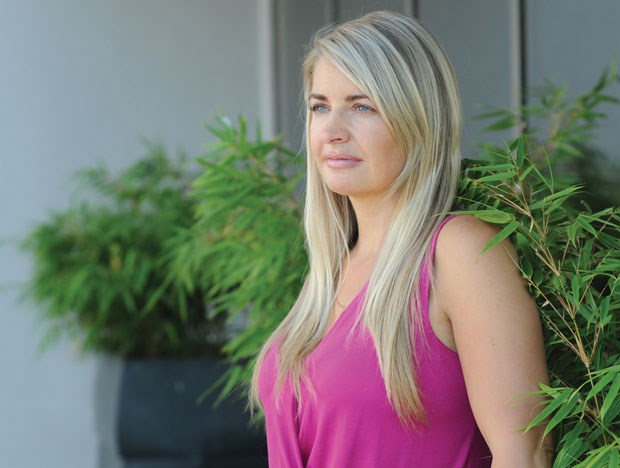While most brides-to-be try to mitigate wedding-related stress, Monique Rook didn’t foresee going deaf one month before the big day.
Sept. 19, 2014 will forever be a memorable day for Rook, an Edgemont Village resident and realtor. That is when she started losing her hearing at 41 years old. “I woke up in the middle of the night and had extreme vertigo,” recalled Rook. “The room was spinning in circles.”
A frightened Rook, who had no history of hearing issues, went to the emergency room where she was told it was likely a crystal in her ear that was causing the dizziness.
Three days later Rook’s hearing started to deteriorate and within one week there was total silence in her left ear. Labyrinthitis, an inner ear inflammation, was the diagnosis from Rook’s ear, nose and throat specialist.
Rook was advised to take anti-inflammatory steroid treatment to give her hearing the best chance at coming back. But because of a bad experience with the drug, prednisone, in the past, Rook was reluctant to take it again.
Fast forward to May 6 — one month before Rook was due to marry Jesse Williamson, a fellow Realtor she had met at an industry golf tournament two years ago.
“Once again I woke with severe vertigo and three days later, my hearing began to fade away in my right ear,” said Rook, who at this point was fearful she would never hear her 10-year-old daughter’s voice again.
Almost completely deaf at this point, Rook was admitted to Lions Gate Hospital and underwent a battery of tests. She was eventually diagnosed with sudden sensorineural hearing loss, defined as a sudden drop in hearing by 30 decibels in at least three frequencies in less than a week.
The condition affects one in 5,000 people every year, with 90 per cent of them never knowing what caused it. Head trauma, autoimmune disorders and viral illnesses are thought to be common causes of sudden sensorineural hearing loss. About half of people with the condition recover some or all of their hearing, especially if they receive steroid treatment at the onset.
One week before the wedding, Rook endured steroid injections in her eardrum and daily sessions in a hypobaric chamber to restore oxygen to her ear — in an attempt to save her hearing.
Meanwhile Rook has learned to communicate by reading lips, which she reports works well one-on-one, but is near impossible and exhausting in a group setting.
Still, she walked down the aisle June 6 knowing a song she had picked out a year ago was playing and she couldn’t hear it.
But while exchanging vows with Williamson, Rook was able to read his lips and body language.
“The most challenging part of the evening for me was missing the words of the speeches and dancing with my loved ones without hearing the music,” recalled Rook.
When the newlyweds returned home, Rook was sent to a head and neck surgeon, otolaryngologist Dr. Jane Lea, at St. Paul’s Hospital, where she received a cochlear implant in her right ear.
Rook is one of 250,000 worldwide to be outfitted with the $40,000 hearing device which consists of two parts: an implant inside the inner ear and a processor worn on the outer ear that picks up sound and transmits it to the implant.
Today is Rook’s “switch on” day at St. Paul’s after three months of silence.
Rook’s husband and daughter will be by her side. While excited, Rook doesn’t know what to expect. “I may only hear beeps and buzzes for the first week, or even months, or I could hear voices normally right away,” said Rook, who is scheduled to receive a second implant in a couple months that is being covered by the St. Paul’s cochlear implant program, for which is so grateful.
"Life throws us curve balls but it's what we choose to make of it that counts," said Rook. "I need to help others and prevent future ears from becoming deaf."
Rook's rountine has remained the same, except for the fact she hasn't be able to work. Williamson stepped up for the sickness and health part, well before before the vows, handling the real estate business and being a full-time caregiver to Rook and her daughter.
"Without his support I would never have made it through these very difficult months," said Rook.
Rook and her husband plan to take in the sights and sounds of Europe next year for their honeymoon.



